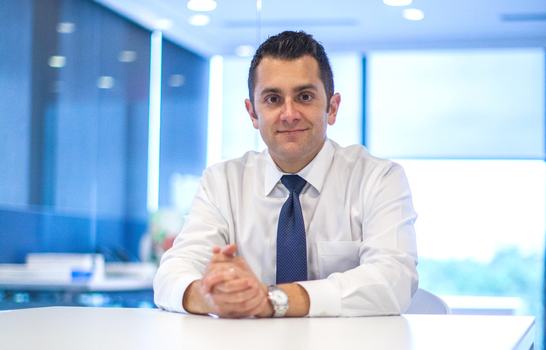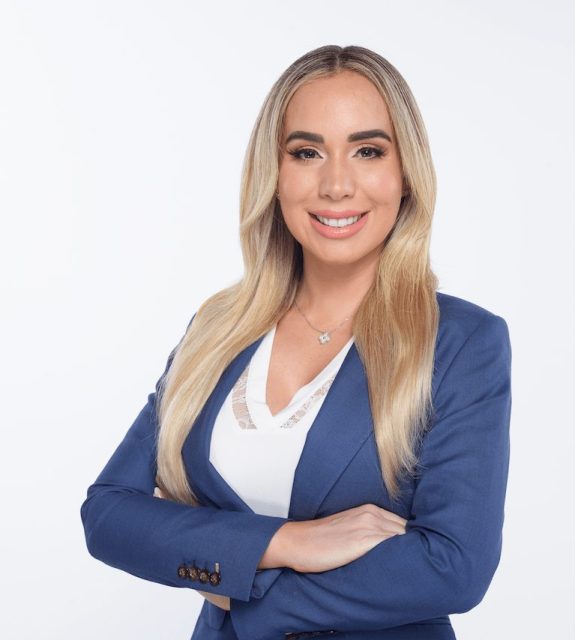
Photo Credit: Levin Law P.A.
Brian Levin is the managing partner of Levin Law P.A. and has both a domestic and international practice, primarily representing individual investors, institutional investors, family offices, and others in claims for investment-related wrong-doing against brokerage firms, private banks, investment advisors, commodities firms, hedge funds, and others. He also represents financial-industry professionals, including financial advisors, private bankers, hedge-fund employees, professional traders, and others in employment-related and trading claims against financial institutions.
Additionally, Levin represents parties in consumer and securities-related class actions and whistleblower actions, as well as parties in business disputes, including corporate divorces, employment matters, and general business litigation. He has recovered millions of dollars on behalf of aggrieved investors. Mr. Levin has represented parties from throughout the world, including Argentina, Uruguay, Chile, Colombia, Venezuela, Mexico, Honduras, Ecuador, Panama, Guatemala, Canada, Spain, France, the United Kingdom, Israel, and China.
Levin carved time out of his busy schedule to answer some questions and provide useful legal advice regarding securities and investment litigation.
Haute Lawyer: How crucial is securities litigation for the success of major companies or clients?
Brian Levin: It is extremely important for the transparency in the capital markets and the ability for investors to trust the markets. While governments do a fair job of prosecuting wrongdoing in the securities space, like market manipulation, and companies making misleading statements, the government can’t capture everything. So, lawyers who prosecute securities class actions and individual securities cases serve a very important societal function. They help protect investors and allow investors to seek recourse when a bank or brokerage firm or a large company has taken advantage of them, or possibly sold securities, like stocks, pursuant to possibly misleading statements, possibly misrepresentations, and a whole wide variety of other functions. Without the ability to seek recourse in the courts, or in private arbitration forums, investors would have no recourse at all, when they’ve been taken advantage of and lost money in the capital markets.
Now, that’s not to say that people can’t lose money in the markets, because people can certainly lose money in the markets, but when people invest in a given company, they should be investing based on reliable and correct information.
HL: What are the three main factors clients should keep in mind before making a major investment?
BL: I think the first questions are, ‘Who is offering the investment and what do you know about that company?’ That is a crucial decision. If it’s a fly-by-night operation that you have never heard of, my typical advice would be to not invest. You also want to look at the credit-worthiness of the company you’re investing in. If you’re investing in a startup, there is a very good probability that the company is going to fail. And even if you invest in an established company, if the company is not credit-worthy, and does not have significant assets, there is a meaningful chance that it could fail as well.
The second most important thing to look at would be the claims being made. Particularly, in the case of private investments, where there is no transparency, and companies are not required to file audited financials or publicly available information. In this case, you really want to know what claims are being made and how the company is going to achieve those purposes. For example, if you’re investing in a company that buys car dealerships, you want to know how that company makes money. Are they just selling cars? Are they making more money off the fixing of the cars or the sales of the used cars? You really want to dig in and do your best to understand what are the claims being made and how the company is going to achieve those purposes.
The third thing is, do you believe in the company and do you understand what is being sold to you? I mean, if you’re investing in something you don’t understand at all, my personal belief is, you shouldn’t invest in it. If you don’t know how a company is going to make money, or you don’t understand the underlying business, it’s probably not an investment for you. Warren Buffett has said many times over, you invest in companies you know, like and use. I think that still holds true today. I was an early user of Amazon and Netflix. Those turned out to be very good investments. Now, that does not mean that’s true across the board, but those are generally good edicts to follow.
HL: Did the COVID-19 pandemic have any lasting changes to the investment industry? If so, how? Has it affected your practice?
BL: It affected my practice on a multitude of levels but I don’t know how lasting those are. As a result of the pandemic, we have had a lot of COVID-related cases. One example that comes up frequently is over-leveraged portfolios. Sometimes, financial institutions will recommend that clients borrow money to purchase securities. In up markets, it works out really well. But in down markets, it magnifies the risk. So if you’re on margin and you’re buying securities and there is a significant dip in the market, as we saw in March of 2020, you get what’s called ‘forced margin calls,’ and then you get course liquidation.
If you just have a cash account, let’s say, $100 thousand in a cash account that dipped in March of last year and you did not sell anything, it would come back significantly in the markets, making a roaring success. If you had leveraged and you had forced margin calls, your securities would be sold at artificially low prices.
The situations where we saw real cases were when financial advisers and investing advisers had recommended that people over-leverage their portfolio, thereby magnifying the risk. Now, in terms of a long-term consequence, I don’t how much COVID will impact securities litigation.
There are some supervisory issues. For example, a brokerage firm has an absolute obligation to properly supervise its financial advisors, and we are seeing some cases where the firms did not continue to appropriately supervise the brokers who were working remotely. In part because it’s logistically difficult to do so but a lot of the issues we saw were situations where the firms just weren’t appropriately monitoring e-mails. It really doesn’t matter where finance advisors are sitting, they should be monitoring e-mails.
The short answer is, in terms of securities litigation, generally, I don’t think that COVID-19 is going to have a lasting impact. However, from the standpoint of practice of law, I think it will have a lasting impact. We have seen a lot of judges who are going to stay remote for a lot of non-evidentiary hearings. Ultimately, I think that’s good for clients because it’s less time that they have to pay their attorneys. It’s also far more efficient than driving to downtown Miami and sitting there for a total of four hours for 10-minute hearings as opposed to just logging onto your computer through Zoom.
HL: What vision do you have for Levin Law P.A. in the coming years?
BL: I think our ultimate vision is to continue to do good and to continue to help people and ultimately make a difference in a meaningful way. On a daily basis, I truly believe that we are on the right side of the law and that we’re helping people when recovering investment losses and we’re helping prosecute against large corporations, but also individuals as well. I truly believe we’re doing good. From a long-term standpoint, we want to find a way to make a profound difference in the world, as a whole. While that does sound lofty, I believe that even small changes we’re able to make, whether it’s making new case law or getting corporations to change policies that harm people, I think in the aggregate, that can have a profound impact. Adding quality attorneys and other members to our team is certainly a goal of ours as well. But ultimately, it’s reaching that goal of making a difference and helping people in the process.
If you would like to obtain more information on Brian Levin’s law firm, head to https://www.levinlawpa.com

























